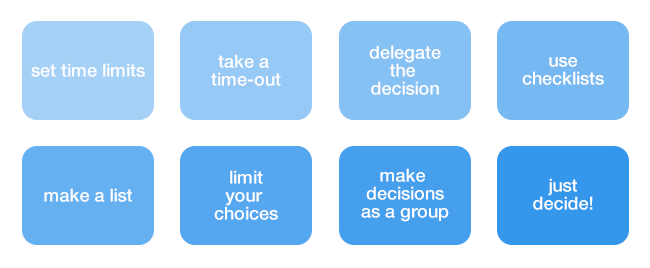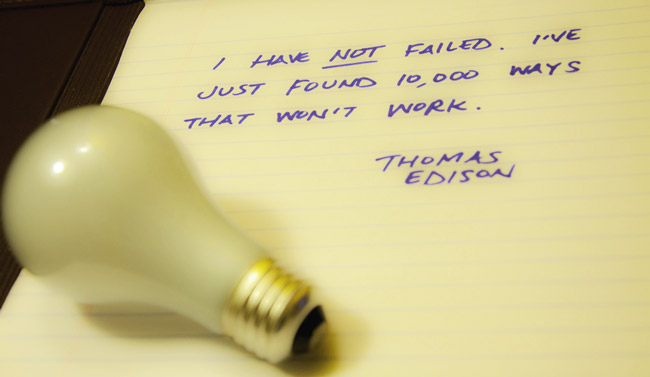Sometimes I write blog posts as a way to share our research and knowledge hoping it will bring value to others. Sometimes I write them to structure my thoughts, setting out our roadmap and communicating it in an easily digestible format (the best way to understand is to write). On rare occasions, I write as a form of mea culpa - as a way to express my sense of pain when I fail to live up to the standards I set for myself and those around me. This just happens to be one of those times.
We’ve been incredibly busy since the new year. We’ve been growing our communications team with some great new people at the same time as we decided to restructure how we support each and every one of our users. On top of that, we had our all hands team gathering in Poland which required a lot of thinking and preparation work. In short, it was an incredibly busy few weeks and a period which was very management heavy. Each of my days were 16 hours long for about 3 continuous weeks, with weekends thrown in to keep things ticking over.
So at a certain point, I crashed.
This is what happened. We had an inquiry about an enterprise license come in. 50+ seats for our product. It’s the kind of license that isn’t make or break for the company (we’re already profitable), but which would be a significant and meaningful bump in our monthly sales. Significant enough that as CEO, I still wanted to be involved in it to make sure we put our best foot forward.
Julie, our customer communications lead flagged the opportunity with me. I duly added it to my todo list, even though it was already noticeably springing leaks from the pressure of decisions that needed to be delegated or de-prioritized. Then, I didn’t get to respond for two days.
She flagged that it was still outstanding, noting (correctly) that I hadn’t responded yet.
Julie : That inquiry is still waiting for a reply - can you do that now?
Me: Not yet, I’ve still a few other things to get through first.
Julie: It’s important, can you just send them a quick holding mail?
Me: No, I’m working through some other stuff. I’ll do it later.
Julie: Just a quick holding mail, it will only take 2 minutes.
Me: I can’t do that right now.
Julie: But…
Me (trembling): Just stop. Now. Please. I can’t deal with that right now.

Michael O’Leary, CEO of ryanair.com (the largest airline in Europe) is famous for helping his ground staff check passengers in when taking a flight on one of his planes.
Stress and fatigue build up silently, insidiously and maliciously. They strike when they are ready, not when you are.
All of a sudden it coalesces. The debt of sleep hits. The headache rapidly arcs up from jawline to forehead, tightening the skin all the way to the back of the forehead. The focus of each conversation becomes not about how to make the right decision for the company, but rather how you can protect yourself against the environment which is demanding solutions from you. The instinct is to delay, avert or cancel any need for any decisions. I was in a negative productivity zone and I couldn’t resolve it.
Negative productivity happens when the impact of your contribution has a detrimental effect on the team overall, in terms of their capacity to complete work or in far more serious cases, their overall motivation.
My brain had literally ground to a halt. I had become unable to move my current priorities to another compartment of my brain while loading the information needed for a quick, simple decision that would satisfy our potential customer and give me the time needed to consider and respond properly to the inquiry.

It was impossible to continue. Something had to give. It’s not that I couldn’t figure out how to respond. It wasn’t even particularly complicated. I literally couldn’t figure out how to prioritise it. I couldn’t insert the new requirement into my internal mental queue. It was like my brain was already full and nothing could be dropped.
The more choices you make each day, the harder each one becomes for your brain. Eventually it looks for shortcuts. - John Tierney (New York Times)
I was suffering from excessive decision fatigue to the point that I couldn’t make decisions about how to prioritise the value of an inquiry. It wasn’t that I didn’t want to deal with the inquiry. It wasn’t even that what I was currently working on was more important that the sales inquiry (it wasn’t).

Decision fatigue refers to the deteriorating quality of decisions made by an individual after a long session of decision making. (Wikipedia)
The higher the level of responsibility, the more significant the effect of a misstep. Each additional tier of management requires you to think about each problem from a greater range of angles than someone who can focus solely on a single area such as development, support or marketing.
For this case, I needed to think not about how I could handle this sales call, but how I could create an environment and team capable of doing that repeatedly and successfully. In short, I needed to delegate a new set of responsibilities down into my team. I also couldn’t differentiate between the short term response needed and the broader organisational improvements needed that caused the issue to occur.

Steve Jobs and Mark Zuckerberg share an approach to fashion: they wear identical clothing every day to reduce the number of decisions they make and the consequent stress of decision fatigue.
It’s easy to look at this particular problem and say “you failed to respond in a timely manner to an important sales inquiry”. From a certain perspective, it is a very simple problem to solve.
But as a founder and CEO, it’s important to think about not just the events at hand, but the context of the problem. The approach requires you to think of it at multiple levels:
The context switching cost of completely unloading your current work to shift gears into another area of the company.
The importance of creating a repeatable process
The importance of being able to delegate the decision to the team, and showing confidence in their ability to handle it.
It’s not always just a question of responding to the customer in order to build a successful business.

It’s a horrible feeling knowing you will be tired the next day before you even go to bed.
Stop and take time out. While you are in the negative productivity zone, you are not contributing to your team.
Perform a prioritisation exercise on paper. Use checklists or lists - then cut the bottom 80% of the things you know you’ll never get to. Delegate the most valuable and time consuming things to your team to get them done (not the quick easy ones).
Plan some low decision activities. For introverts like myself, taking some time to watch a documentary or exercise clears the head and restores decision making willpower. If you are a science geek like me, I recommend the announcement of the study of gravitational waves, but find what works for you.
Ask someone else to take responsibilities for decision making for a while. If you have the right team, they will be there to help you when you are feeling the strain.
Look for help. Your body language tells a story and the people around you can see it. Don’t stress yourself out even further by trying to maintain an aura of invincibility. Letting people know you are human will also help their confidence and willingness to take on responsibility as part of the team.
Prevention is better than cure.

Reduce the number of choices you make each day. As soon as the weekend arrived, I went through my personal and work email and unsubscribed from every mailing list I had inadvertently been signed up to. I set up filters for every other regular email I don’t need to react to immediately. I went through every app on my phone and turned off pointless notifications. Now it’s like my world has gone silent and it’s a total joy.
Structure your decision making process around points of the day that people are recommended to engage with you. Daily 15 minute standups, early in the morning when you are at your peak are perfect for this purpose. This will have a short term negative effect as people feel they are not getting as quick a response, but has a longer term positive, both in staff growth and in your own piece of mind.
If your team are confident they will get their ideas and needs met on a regular basis, they won’t need to interrupt at short notice to request a review each time. This will then also have major knock on improvements to their productivity.
Realise you can’t solve every problem you face. Trying to do so will result in systematic repeatable and excessive stress. Communicate rules for what your company doesn’t do as much as what it does do.
Channel the fatigue into a positive frame of reference. A few years ago, I was in a particularly tough rugby match against an equally matched opposition. Half time came and everyone was out of breath and already showing signs of fatigue. The half time team talk was going to be critical. We knew the second half was going to come down to fitness, and the first thing that slips when you are tired is your focus and concentration. There is a particular feeling you get when tired though. When you feel it, you can channel it into an energy all of its own.
Look to understand the signs of fatigue and know when you are at risk. It can then be channelled (at least in the short term) into something positive.

This issue for me came about ultimately because we were transitioning our communications and support processes. It would be a torrid and unthinkable result if I allowed the same situation to occur again. We needed to:
Structure how we communicate within the team better.
Put a framework in place to give our team confidence to answer the new type of inquiry without needing to refer back up the chain.
Get it documented and hand over responsibility.
Celebrate when someone successfully closes a sale.
If that were the end of the story, it would be a bad ending. Transitions can be stressful and time consuming as companies grow. Things can be dropped as new relationships form, bonds are created and new skills are learned. In a well run company however, things settle down, and I’d like to think that what we are achieving now is better than ever before and that the team has grown new skills and new maturity. In other words, the short term pain was definitely worth it.
We have gone from 2 people providing support on a best effort basis to 6 people providing 18 hour live chat support. We have put in place the processes not to know all the answers immediately, but to give the capacity for each member of the team to take on the different challenges without needing to escalate them and to be able to resolve them quicker than ever with our customers.

We have set out our roadmap and our longer term goal is 24 hour live chat support with a response time of 2-3 minutes. A week after we transitioned, we hit a new record - a mean response time of 10 minutes on all in app queries via intercom.
Given the size we are at as a company, that is something I am incredibly proud of and can’t express my admiration to the team well enough. Finally, from a management perspective, we have a structured place we can grow the team and make sure questions are answered and that each member of the team has a capacity to learn quickly and in a safe and supportive environment.
I’ve done it before, and I will hit the wall again. That will never change. But what is important is that each time I do (or just before), we grow and evolve how we do things to make sure the overall impact is a positive one for our users. Sometimes stress is a necessary sign leading to a better result and a more capable team. Trusting your team and delegating the necessary decisions is the only way to properly and permanently recover from it however.